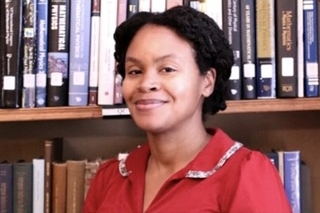In-Person
Past Event: Political Philosophy and Race Speaker Series: Shatema Threadcraft (Vanderbilt)

This event has passed.
- Past Event: Tue Jan 28, 2025 4:00 p.m.—6:00 p.m.
Location: WLH 207
Title: Black Femicide and Toni Morrison and W.E.B. Du Bois’s Democratic Storytelling
Abstract:
Black women are 10% of the US female population yet represent 59% of women murdered. Most of those deaths were instances of intimate partner violence, and thus a form of Black femicide. More pregnant women are murdered than those who die of the top three pregnancy-related complications, and in the US Black women account for 44.6% of all instances of pregnancy-related fatal, intimate partner violence. Maternal- and abortion-related deaths are considered a form of “passive” femicide, and in the US 57% of Black women of reproductive age live under abortion bans or severe abortion restrictions. Black women are three times more likely to die of pregnancy-related complications than white women.
Despite all this, more people are mobilized in response to the deaths of Black men than those of Black women. Kimberlé Crenshaw understands this asymmetry as partially rooted in Black women’s lack of “narrative capital,” and Crenshaw has called on women to “share their stories” of violence in order to redistribute such capital and occasion greater mobilization. But those who call on Black women to share their stories of private violence must reflect, not only on the complications of sharing publicly these stories of violent intimacy, but on how Black political leaders like W.E.B. Du Bois have written spectacular violence, and specifically lynching, into the story of who Blacks are and why they are here. In this talk, Professor Threadcraft (author of Intimate Justice: The Black Female Body and the Body Politic, Oxford University Press 2016) explores the people-making stories of Du Bois alongside Toni Morrison’s stories, focusing on the deaths Morrison centers in her work; the ephemeral collectives she sought to build through her tales of intimate violence and death; and how she would have such stories shared to argue for a more effective method of storytelling to increase mobilization in response to Black women’s deaths.